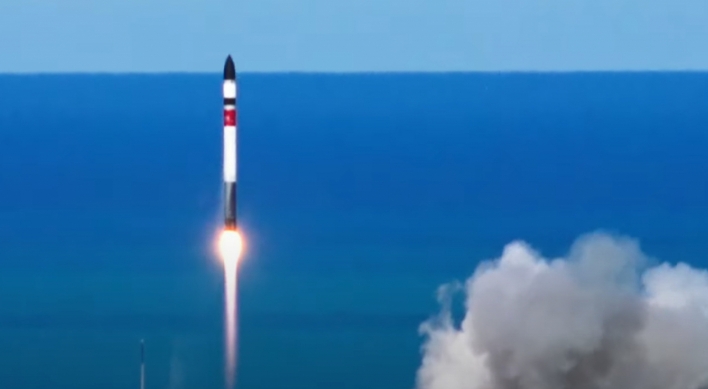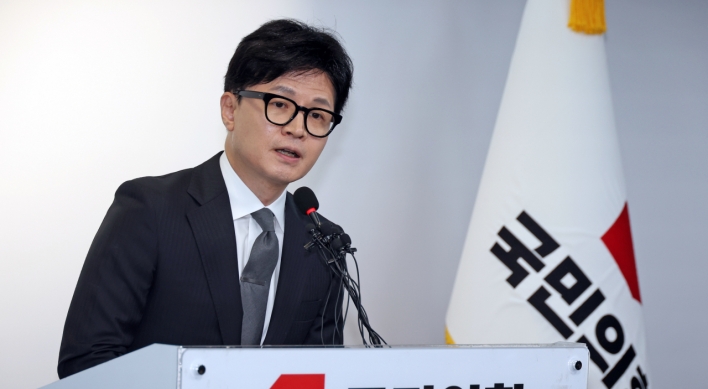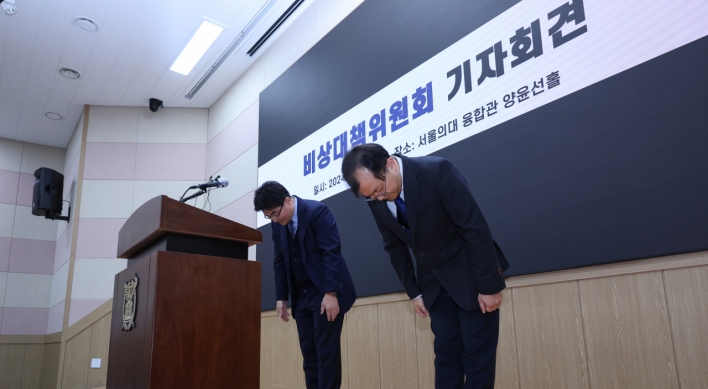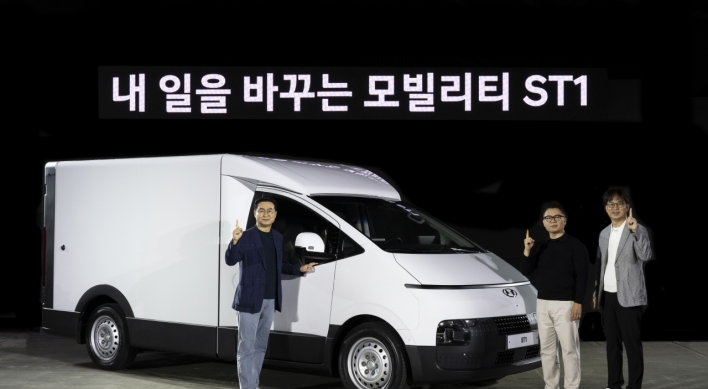MOSCOW (AP) ― Alexei Balitsky, a student at Russia’s top engineering school, is among hundreds of people across the country who have complained of pressure to vote for the Kremlin’s party in this weekend’s parliamentary elections.
The independent election watchdog group Golos said Wednesday that about a third of the 4,000 complaints of violations it has received so far come from voters who say they are being pressured ― mostly by bosses at work or professors at universities ― to vote for United Russia.
The party is supported by President Dmitry Medvedev and Prime Minister Vladimir Putin, but its ratings have been dwindling. Sunday’s parliamentary election is being seen as an indication of public support for Putin as he prepares to return to the presidency in a vote now three months away.
Balitsky, a 19-year-old second-year student at the Moscow Institute for Physics and Technology, said he and other student leaders were told that if their precinct did not turn out for United Russia, it might harm the university’s chances of getting state funding for a new dormitory.
He told the Associated Press that he and other student leaders were promised 2,000 rubles (about $63) if they delivered a turnout of 80 percent of the students in their groups.
They also were instructed to tell students who wanted to vote for a party other than United Russia to take an absentee ballot and vote at another polling station so as not to hurt their precinct’s results, he said. The university’s 2,500 students make up the majority of voters in the precinct.
Balitsky said the message was delivered by senior students and it was not clear where the order came from. The university staff have denied pressuring students about how they should vote.
Alexander Kynev, chief of research for the Golos group, said the pressure on people to vote for United Russia appeared greater than the pressure placed on opposition candidates.
In the previous election four years ago, opposition candidates complained about routinely being blocked from campaigning in public places and about having trouble getting their campaign literature printed.
The campaign this year has been relatively calm and low key.
“One of the things you don’t see here, and this has been remarked upon, you hardly see a campaign,” said Spencer Oliver, secretary general of the Organization for Cooperation and Security in Europe’s Parliamentary Assembly. The OSCE has sent about 300 foreign observers to monitor the election.
Oliver, an American, has observed almost every Russian election since the fall of the Soviet Union in 1991.
“In 1993, it was almost complete chaos, with something like 40 political parties and people campaigning on all kinds of platforms,” he said. “There was no real certainty about what the outcome would be.”
Since then, and especially since Putin came to power in 2000, Russia’s election laws have been steadily tightened. Only parties that have Kremlin approval are now allowed to run and they must receive 7 percent of the vote to claim seats in parliament.
“Now it’s a little more calm, very calm,” Oliver told the Associated Press.
The Kremlin seems to have little interest in a high turnout, which could boost the vote counts of the six other parties in the race. Instead, the strategy appears to be to get out the vote of only the most loyal electorate or those most vulnerable to pressure.
“The entire system of state authority is actually working for the benefit of only one party,” said Liliya Shibanova, Golos’ executive director. “There is direct pressure at every level of government with the demand that a maximum high result be achieved for the United Russia party.”
United Russia won 64 percent of the vote in the 2007 parliamentary election, but the latest polls show the party hovering at about 50 percent. The Communist Party is running second with about 20 percent.
Golos set up a website to collect and display complaints of election law violations throughout Russia. It currently counts more than 4,000 complaints.
Kynev said that even those who do not necessarily support the opposition parties seem to be complaining about the pressure from their bosses or superiors to vote.
Along with Medvedev and Putin, scores of government ministers, mayors and governors take part in United Russia campaign events in their constituencies.
The independent election watchdog group Golos said Wednesday that about a third of the 4,000 complaints of violations it has received so far come from voters who say they are being pressured ― mostly by bosses at work or professors at universities ― to vote for United Russia.
The party is supported by President Dmitry Medvedev and Prime Minister Vladimir Putin, but its ratings have been dwindling. Sunday’s parliamentary election is being seen as an indication of public support for Putin as he prepares to return to the presidency in a vote now three months away.
Balitsky, a 19-year-old second-year student at the Moscow Institute for Physics and Technology, said he and other student leaders were told that if their precinct did not turn out for United Russia, it might harm the university’s chances of getting state funding for a new dormitory.
He told the Associated Press that he and other student leaders were promised 2,000 rubles (about $63) if they delivered a turnout of 80 percent of the students in their groups.
They also were instructed to tell students who wanted to vote for a party other than United Russia to take an absentee ballot and vote at another polling station so as not to hurt their precinct’s results, he said. The university’s 2,500 students make up the majority of voters in the precinct.
Balitsky said the message was delivered by senior students and it was not clear where the order came from. The university staff have denied pressuring students about how they should vote.
Alexander Kynev, chief of research for the Golos group, said the pressure on people to vote for United Russia appeared greater than the pressure placed on opposition candidates.
In the previous election four years ago, opposition candidates complained about routinely being blocked from campaigning in public places and about having trouble getting their campaign literature printed.
The campaign this year has been relatively calm and low key.
“One of the things you don’t see here, and this has been remarked upon, you hardly see a campaign,” said Spencer Oliver, secretary general of the Organization for Cooperation and Security in Europe’s Parliamentary Assembly. The OSCE has sent about 300 foreign observers to monitor the election.
Oliver, an American, has observed almost every Russian election since the fall of the Soviet Union in 1991.
“In 1993, it was almost complete chaos, with something like 40 political parties and people campaigning on all kinds of platforms,” he said. “There was no real certainty about what the outcome would be.”
Since then, and especially since Putin came to power in 2000, Russia’s election laws have been steadily tightened. Only parties that have Kremlin approval are now allowed to run and they must receive 7 percent of the vote to claim seats in parliament.
“Now it’s a little more calm, very calm,” Oliver told the Associated Press.
The Kremlin seems to have little interest in a high turnout, which could boost the vote counts of the six other parties in the race. Instead, the strategy appears to be to get out the vote of only the most loyal electorate or those most vulnerable to pressure.
“The entire system of state authority is actually working for the benefit of only one party,” said Liliya Shibanova, Golos’ executive director. “There is direct pressure at every level of government with the demand that a maximum high result be achieved for the United Russia party.”
United Russia won 64 percent of the vote in the 2007 parliamentary election, but the latest polls show the party hovering at about 50 percent. The Communist Party is running second with about 20 percent.
Golos set up a website to collect and display complaints of election law violations throughout Russia. It currently counts more than 4,000 complaints.
Kynev said that even those who do not necessarily support the opposition parties seem to be complaining about the pressure from their bosses or superiors to vote.
Along with Medvedev and Putin, scores of government ministers, mayors and governors take part in United Russia campaign events in their constituencies.
-
Articles by Korea Herald



![[Exclusive] Korean military set to ban iPhones over 'security' concerns](http://res.heraldm.com/phpwas/restmb_idxmake.php?idx=644&simg=/content/image/2024/04/23/20240423050599_0.jpg&u=20240423183955)

![[Graphic News] 77% of young Koreans still financially dependent](http://res.heraldm.com/phpwas/restmb_idxmake.php?idx=644&simg=/content/image/2024/04/22/20240422050762_0.gif&u=)



![[Pressure points] Leggings in public: Fashion statement or social faux pas?](http://res.heraldm.com/phpwas/restmb_idxmake.php?idx=644&simg=/content/image/2024/04/23/20240423050669_0.jpg&u=)










